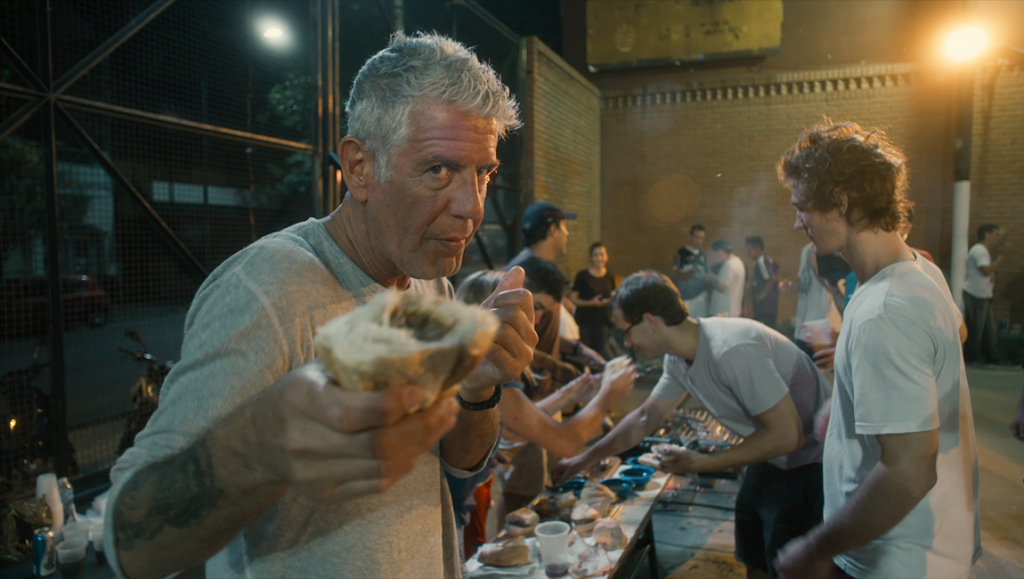Roadrunner doesn’t revolutionize the portrait documentary, but it does execute its essential elements with pathos and formal precision.
The late culinary connoisseur Anthony Bourdain once said “the greatest sin is mediocrity.” Regardless of the original context, this statement can be applied to a number of arenas: from the world of fine cuisine to the disastrous industry dedicated to inferior portrait documentaries to the arbitrary stylistic devices that pander to fandoms and the supposed livelihoods of famed celebrities. Incorporating all three, the rise of amateur nonfiction features that highlight a day in the life of such renowned artists and cultural icons can be most adequately regarded as celebrity-endorsed propaganda. In the case of a larger-than-life figure such as Bourdain, only a few filmmakers seem equipped to effectively tackle the difficult and turbulent life of the troubled television star. Thankfully, director Morgan Neville is on the shortlist and, in tandem with his talented team of committed editors, helps Roadrunner: A Film About Anthony Bourdain avoid the trappings of subpar portraiture, instead providing a unique study of the cycles of grief and acceptance told from the perspective of Bourdain’s colleagues following his death.
Prominently highlighting Bourdain’s career from the inception of his first publication, Kitchen Confidential, Neville’s extensive collection of B-rolls — including both hours of behind-the-scenes television footage and audio clips — provide an intimate glimpse of Bourdain’s ever-shifting personality. In one moment, a hard cut to silence seeks to emphasize Bourdain’s struggle with depression; in another, the interpolation of non-diegetic musical cues (ranging from the works of Brian Eno to Ryuichi Sakamoto) punctuates his loss of identity. Through simple editing tactics, Neville’s purposeful direction contextualizes his film’s thesis regarding media sensationalism and the search for normalcy amid a cesspool of cultural chaos. As Bourdain’s fame grows over the early 21st century, more clarity is afforded (both literally and figuratively), with the introduction of higher resolution camera footage and Bourdain’s personal struggles with past relationships. Even the shooting locations of the newly documented interviews are set in empty bars and abandoned dining rooms, mirroring the isolating effect of grief and symbolizing the pain that Bourdain’s death has caused amongst his social circle (and beyond) over the last few years.
There’s likely no easy salvation for the portrait doc, but Roadrunner makes a strong case that what the sub-genre needs is a concise purpose, a substantive reason to exist amid a sea of disposable celebrity worship. Neville’s understanding of both his subject and broader subject matter, and his command of simple but effective mise-en-scene, provides a gratifying portal into Anthony Bourdain’s psyche and relatable struggles. The result of this meaningful probing and deep humanism is a film that offers enlightening and potent reflection, and affords closure not just to viewers and fans, but, with profound empathy, to Bourdain’s associates, friends, and lovers.
Originally published as part of Tribeca Film Festival 2021 — Dispatch 7.


Comments are closed.